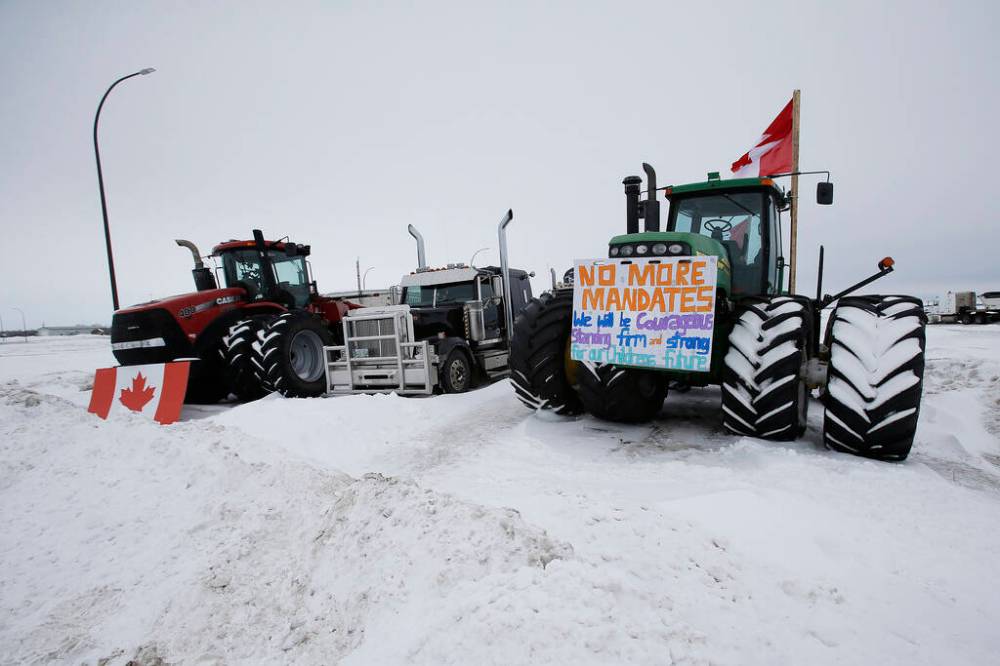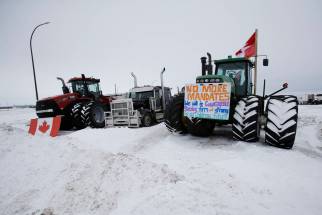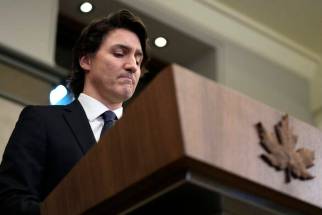‘The Emerson thing hurt us significantly’ ‘Unnecessary’ trucker blockade had significant economic impact, hurt province’s reputation
Read this article for free:
or
Already have an account? Log in here »
To continue reading, please subscribe:
Monthly Digital Subscription
$0 for the first 4 weeks*
- Enjoy unlimited reading on winnipegfreepress.com
- Read the E-Edition, our digital replica newspaper
- Access News Break, our award-winning app
- Play interactive puzzles
*No charge for 4 weeks then price increases to the regular rate of $19.00 plus GST every four weeks. Offer available to new and qualified returning subscribers only. Cancel any time.
Monthly Digital Subscription
$4.75/week*
- Enjoy unlimited reading on winnipegfreepress.com
- Read the E-Edition, our digital replica newspaper
- Access News Break, our award-winning app
- Play interactive puzzles
*Billed as $19 plus GST every four weeks. Cancel any time.
To continue reading, please subscribe:
Add Free Press access to your Brandon Sun subscription for only an additional
$1 for the first 4 weeks*
*Your next subscription payment will increase by $1.00 and you will be charged $16.99 plus GST for four weeks. After four weeks, your payment will increase to $23.99 plus GST every four weeks.
Read unlimited articles for free today:
or
Already have an account? Log in here »
Hey there, time traveller!
This article was published 15/02/2022 (1395 days ago), so information in it may no longer be current.
The trucker blockade of the Emerson border crossing not only added additional time and costs to shipments but will also damage the reputation of the province, manufacturers and stakeholders say.
Although the RCMP announced on Tuesday afternoon that demonstrators are leaving and should be gone by Wednesday, Ron Koslowsky, the vice-president and head of Manitoba operations for the Canadian Manufacturers and Exporters — 95 per cent of whose Manitoba members rely on regular cross-border shipments at Emerson — said, of the Emerson blockade, “The impact has been massive.”

Winpak Limited, the large packaging material manufacturer that is headquartered in Winnipeg and has manufacturing plants throughout the U.S., had to shut down one of its production lines because it couldn’t get the raw material it needed.
The company exports 82 per cent of its production to the U.S. and had been diverting its trucks to Saskatchewan border crossings.
Olivier Muggli, Winpak’s CEO, said, “Overall the whole blockade damages the Canadian reputation at large and specifically Winpak. The Emerson thing hurt us significantly.”
“The situation is creating issues to the point where some companies are literally talking about moving to the U.S. This is the straw that broke the camel’s back.”
– Ron Koslowsky
While the RCMP said they are “confident that a resolution has been reached,” it does not mean everything immediately goes back to normal for shippers.
“The blockade lasted six or seven days, but it takes a while to re-establish things,” Muggli said. “This will probably have a detrimental effect on us for a month.”
The refrain heard from many affected parties in the province is that in addition to the costs — extra time and mileage because of detours and costs and penalties because of late shipments — it will have a negative effect on Manitoba’s reputation as a reliable centre for manufacturing and distribution.
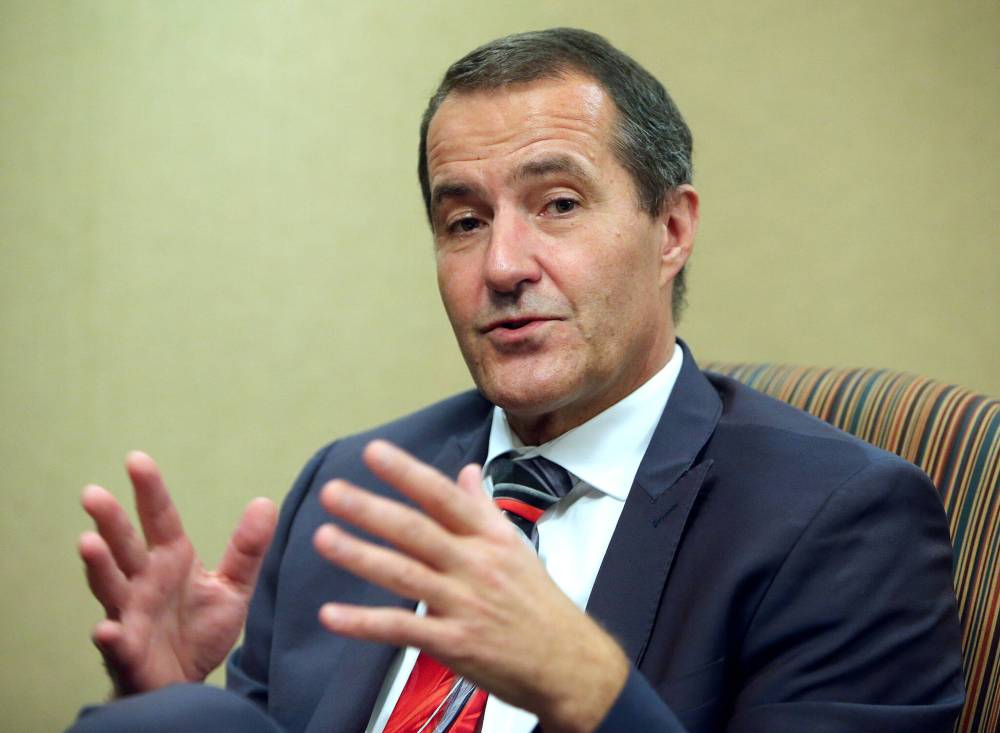
Koslowsky said, “The situation is creating issues to the point where some companies are literally talking about moving to the U.S. This is the straw that broke the camel’s back. They can’t service their customers. The image we are creating among our customers in the U.S. is a very poor one right now.”

Barry Prentice, a long-standing logistics expert at the University of Manitoba, agreed that while the blockade at the Emerson crossing — it is the busiest one on the Prairies with $73 million per day of goods crossing the border, compared to $48 million per days at Coutts, Alta., for instance — has meant delays and added costs, goods did continue to get through at several other border crossings.
“Sadly, it was all so unnecessary,” he said.
There was vehement opposition to the federal government’s mandate that truckers would need to be vaccinated by the beginning of the year by just about every element of the Canadian economy.
Not only had truckers been operating virtually incident-free since the beginning of the pandemic before there were vaccines, several provinces including Manitoba are already starting to lift restrictions.
‘Complete circus’ blockade at Emerson border crossing to end
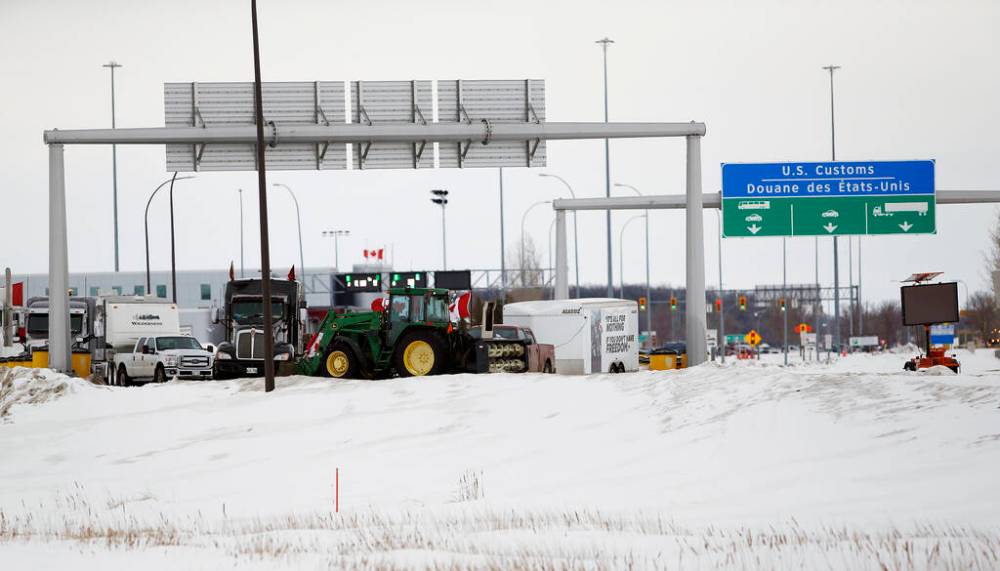
Posted:
Protesters in semis and tractors have promised to release their chokehold on Manitoba’s busiest border crossing after almost a week over their insistence mask and vaccine mandates be removed immediately.
Prentice used the analogy about the dangers of disturbing a hornets’ nest.
“I guess the federal government does not know much about hornets,” he said.
Koslowsky said he had members saying to him that this problem began with the vaccine mandate, weeks before the blockade.
“I had companies calling me saying they had lost their trucking firm because they did not have enough drivers and they had been rationalized out of their service,” he said. “So they had no way of getting their product to market.”
But there’s no question the blockade had a significant economic impact. One large agricultural equipment manufacturer said it was costing that company $450,000 per day in lost revenue and additional expense.
Meanwhile, even though the blockade is now coming down, the stresses the trucking industry has been dealing with will not disappear.
Aaron Dolyniuk, the general manager of the Manitoba Trucking Association, said the detours were costing some trucking companies $25,000 per day. A day after the blockade began last week, blizzard conditions closed the Perimeter Highway, slowing things down even more. Many companies are under contract to move goods for a customer and detours and storms do not change the contract.
“The additional costs come out of the pockets of individual members,” he said.
As well, a week-long border crossing blockage does not make it any easier to recruit drivers, a challenge that the trucking industry had already been dealing with for years.
“The pressure (on recruiting drivers) has increased,” Dolyniuk said. “There’s still a huge demand and a shortage of labour for our industry. It makes things more complicated really.”
martin.cash@freepress.mb.ca

Martin Cash has been writing a column and business news at the Free Press since 1989. Over those years he’s written through a number of business cycles and the rise and fall (and rise) in fortunes of many local businesses.
Our newsroom depends on a growing audience of readers to power our journalism. If you are not a paid reader, please consider becoming a subscriber.
Our newsroom depends on its audience of readers to power our journalism. Thank you for your support.
History
Updated on Tuesday, February 15, 2022 6:57 PM CST: Adds related story
Updated on Wednesday, February 16, 2022 7:50 AM CST: Minor copy editing changes

